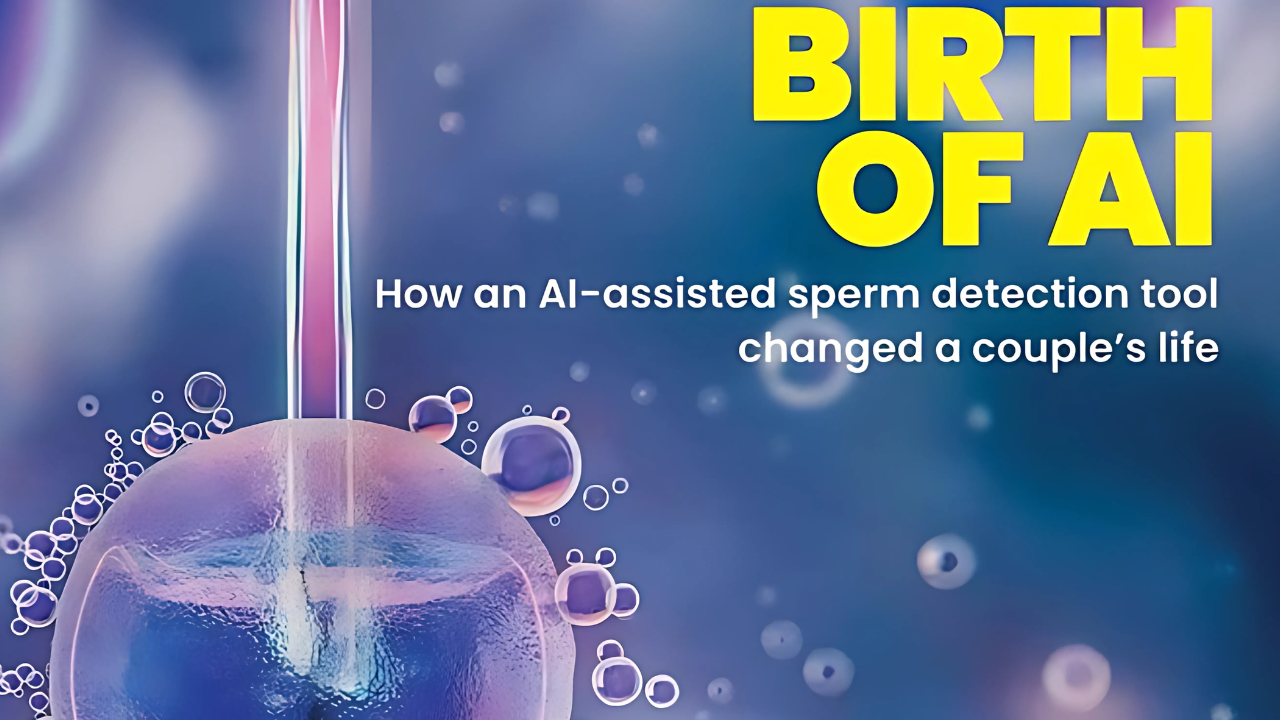
Post by : Shivana Rahim
Infertility has long been a challenging and deeply emotional journey for many couples worldwide. In Dubai, a pioneering AI tool is transforming this narrative by helping couples conceive where all hope seemed lost. This breakthrough innovation combines artificial intelligence with advanced fertility techniques to detect rare sperm cells often missed by conventional methods, offering a beacon of hope to couples facing severe male infertility.
Male infertility accounts for a significant portion of couples' struggles with conception worldwide. One of the hardest conditions to treat is non-obstructive azoospermia (NOA), where sperm is absent in semen samples. Traditionally, embryologists perform painstakingly long microscopic searches for sperm during surgical sperm retrieval procedures, but success rates have been low for NOA patients.
In this context, the arrival of an AI-assisted sperm detection system represents a groundbreaking change. The tool uses deep learning algorithms to scan tissue samples quickly and accurately, detecting viable sperm that would otherwise be overlooked under standard observation.
The AI technology used in Dubai, known as SpermSearchAI, mirrors similar innovations like the STAR (Sperm Tracking and Recovery) method developed at Columbia University. These systems apply machine learning and high-resolution imaging to reveal the hidden "needles in a haystack" — rare sperm cells critical to successful conception through assisted reproductive techniques like IVF (in vitro fertilization).
In Dubai’s Fakih IVF Centre, specialists employed SpermSearchAI during microsurgical testicular sperm extraction (microTESE) to identify viable sperm cells from a male patient previously diagnosed with NOA. While traditional methods failed to detect sperm, the AI-assisted process highlighted healthy sperm within the tissue, enabling the use of intracytoplasmic sperm injection (ICSI) to fertilize eggs, resulting in pregnancy.
The couple featured in the Dubai case had been trying to conceive for over two years with no success. Traditional fertility solutions had been bleak due to severe male infertility, which often leads to heartbreak and emotional strain. Thanks to the AI tool, their fortunes changed — they are now expecting a child, exemplifying the transformative potential of AI in fertility treatments.
This story aligns with similar cases worldwide, including couples who endured years of infertility and multiple failed IVF attempts, only to find success after AI-assisted sperm detection was employed. These AI systems enhance accuracy and efficiency, reducing the time specialists need to find sperm, and increasing the chances of conception.
AI infertility tools use advanced image recognition, robotics, and fluidic chips to sort and isolate sperm cells effectively. The technology significantly shortens sperm retrieval times from days to mere hours, promotes less-invasive procedures, and boosts the accuracy of sperm identification.
Several benefits include:
Higher detection rates of viable sperm even in severely azoospermic samples
Reduced stress and uncertainty for patients due to faster diagnostics
Improved IVF success rates by using healthier sperm identified with AI precision
Potential cost reductions compared to repeated, prolonged procedures
These innovations are not limited to sperm detection alone; AI is increasingly applied throughout fertility medicine to assess embryo quality, predict IVF success rates, and personalize treatment protocols, making infertility care smarter and more compassionate.
Dubai’s adoption of AI tools like SpermSearchAI positions the emirate as a leader in fertility innovations. With ongoing clinical trials and research collaborations, the capabilities of AI in reproductive medicine continue to expand, offering renewed optimism for countless couples worldwide.
Experts highlight that these technologies do not replace human expertise but enhance it—augmenting embryologists' ability to detect rare sperm and making a real difference for patients deemed unlikely to conceive naturally or even through conventional assisted methods.
The emergence of AI-driven fertility technologies such as the AI tool in Dubai demonstrates a paradigm shift in treating male infertility. By harnessing artificial intelligence, deep learning, and advanced imaging, specialists can unlock new paths to parenthood for couples who faced what seemed like impossible odds.
This innovative approach not only brings hope and joy to individuals but also represents a significant leap forward in reproductive medicine, promising more accessible, efficient, and successful fertility treatments worldwide.










Curry Powers Warriors to Nail-Biting 109-108 Victory Against Spurs
Stephen Curry's 49 points propel the Warriors to a dramatic 109-108 NBA Cup triumph over the Spurs,

India Advances to Semi-Finals After Thrashing USA in Women’s Blind T20 World Cup
India secured a dominant ten-wicket victory over the USA, advancing to the semi-finals in the Women’

South Africa's Early Advantage as India Struggles on Day Two
On Day Two, India reached 138-4 as South Africa took three early wickets, complicating matters with

Kenta Nishimoto Defeats Lakshya Sen in Japan Masters Semifinal
Lakshya Sen's journey in the Japan Masters ends after losing to Kenta Nishimoto 19-21, 21-14, 12-21

Kenta Nishimoto Defeats Lakshya Sen in Japan Masters Semifinals
Lakshya Sen's run at the Japan Masters concludes with a loss to Kenta Nishimoto in the semifinals, 1

Major IPL Trade: Jadeja Joins Royals as CSK Signs Samson
In a significant IPL trade, CSK has acquired Sanju Samson from Rajasthan Royals in exchange for Ravi